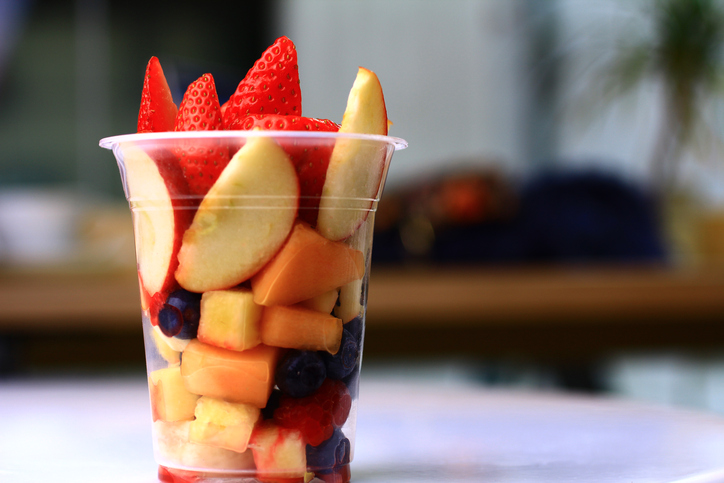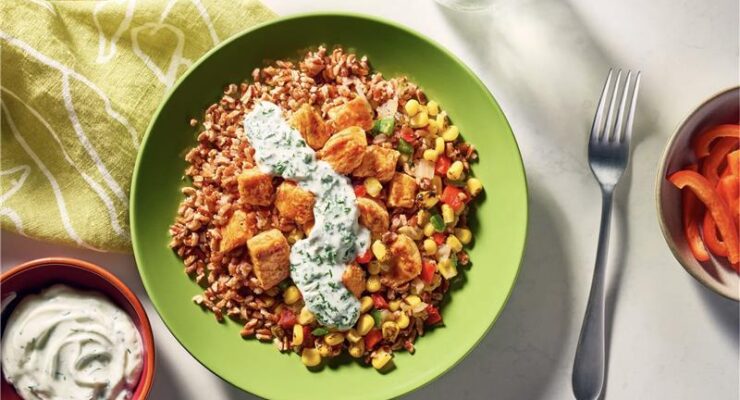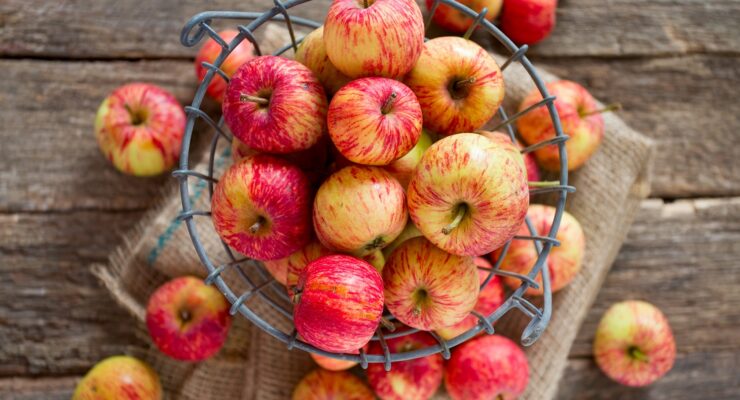
You probably know by now that just because the word “fruit” is in something doesn’t mean it’s a health food. After all, there’s more than one sugary cereal on the market that has the word “fruit” as part of its name.
While some foods are a bit more obvious to decipher, what about those little pre-packaged fruit cups? They contain real fruit—so, are they healthy? We turned to Nutrisystem’s Registered Dietitian Mandi Knowles to get the skinny on fruit cups.
Beware of the Added Sugar
The biggest issue with fruit cups—particularly the canned varieties—is how the fruit is preserved. A lot of times it’s in light or heavy syrup, which, Knowles says, equates to unnecessary added sugar. Although the sweet taste of the sugary syrup can make produce more appealing to kids or those who don’t really like to consume a lot of fruit, all of that added sugar is negating the health benefits.
For instance, while “fruit cocktail” may seem like a fun medley of different fruits, it’s also notorious for being packed in syrup. And on top of all that added sugar, the cherries tend to contain artificial colors.
If you like the grab-and-go aspect of fruit cups, Knowles says to look for the varieties that are packed in water or 100 percent fruit juice. They will have a lot less added sugar and, therefore, do much less damage to your diet.
Similar to fruit cups, Knowles adds that applesauce can also have a significant amount of added sugar, if you’re not choosing wisely. She suggests looking for natural, unsweetened varieties. Read the labels carefully and seek out as little sugar and chemical additives as possible. Better yet, make your own and you’ll know exactly what went into it!
Put Fresh First
While fruit cups and prepackaged applesauce are easy for grab-and-go snacks, there are definitely some major nutritional differences between processed fruits and fresh fruits. For one, Knowles says that both fruit cups and applesauce contain a lot less fiber—usually because the skin (which contains a lot of fiber) is removed during the preparation of these foods.
Fresh fruit almost always has more fiber than the kind you find in a typical fruit cup. For example, one popular variety has less than one gram of fiber in their four-ounce diced pear cup. When you compare that to the six grams of fiber you could get from one medium pear, it becomes obvious that fresh is the more nutritious choice.
“Fiber is important when you are on a weight loss diet,” continues Knowles. “We know that fiber is an important nutrient for keeping you full!”
Canned fruits may also be depleted of vitamin C, which is sensitive to heat and can sometimes be destroyed during the canning process. Fortunately, other vitamins and minerals have no trouble surviving the heat.
The Bottom Line
While fresh fruit is typically the ideal, the bottom line is that fruit cups can be a healthy option—so long as you are opting for varieties that are packed in water or 100 percent fruit juice, says Knowles. Fruit cups deliver vitamins and minerals, which make them a better snack choice over chips or cookies, which only deliver empty calories. Fruit cups with no added sugar or chemicals can be an effective way to fit in a serving of fruit for a quick snack or as part of a meal.
Click here for some awesome new ways to enjoy your fresh fruits! >












